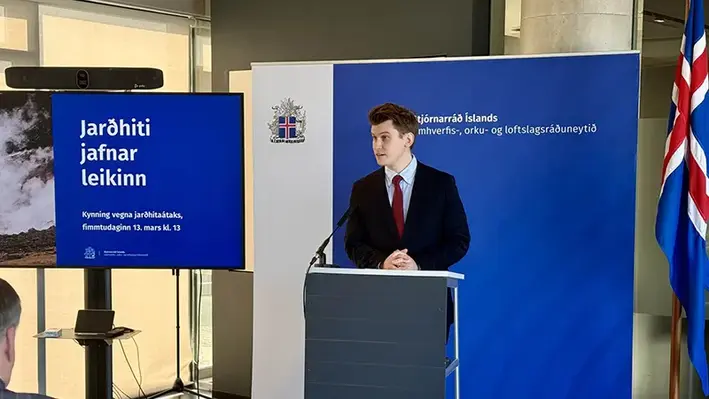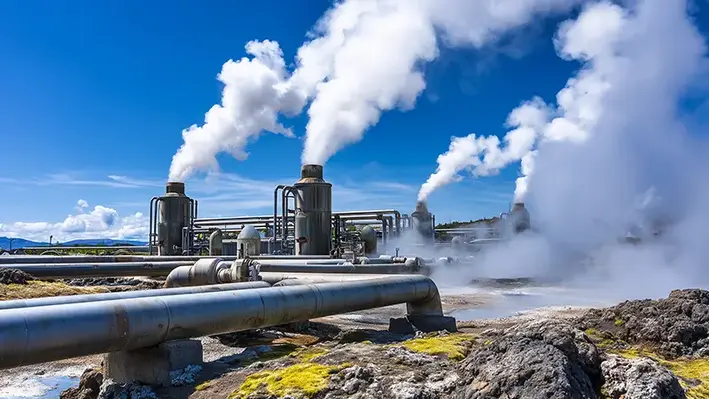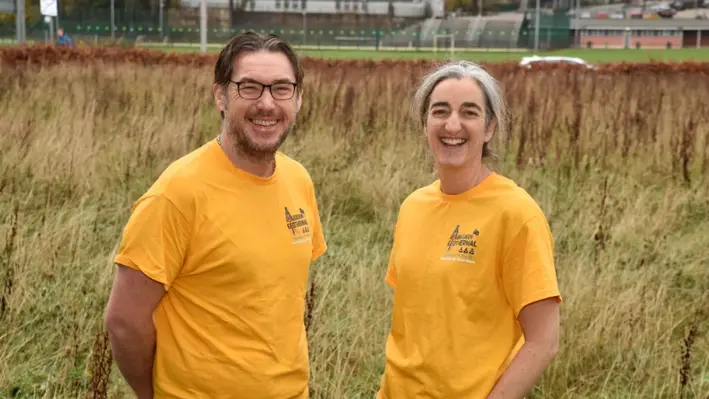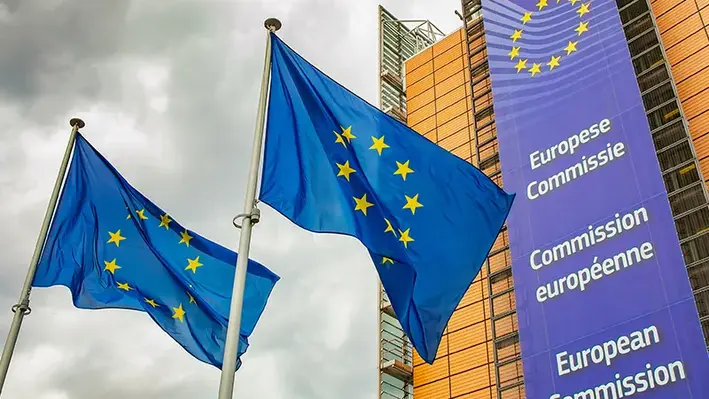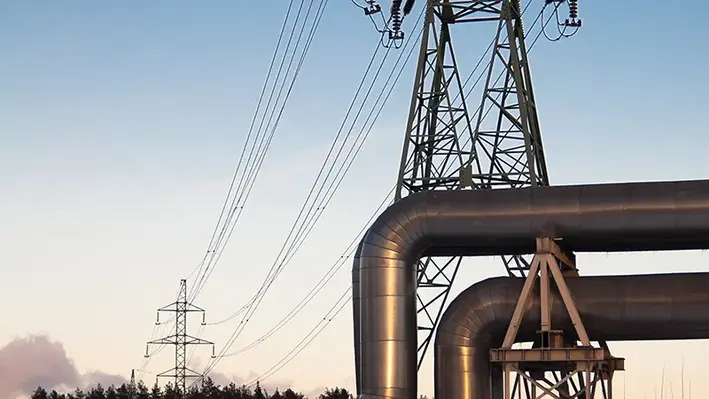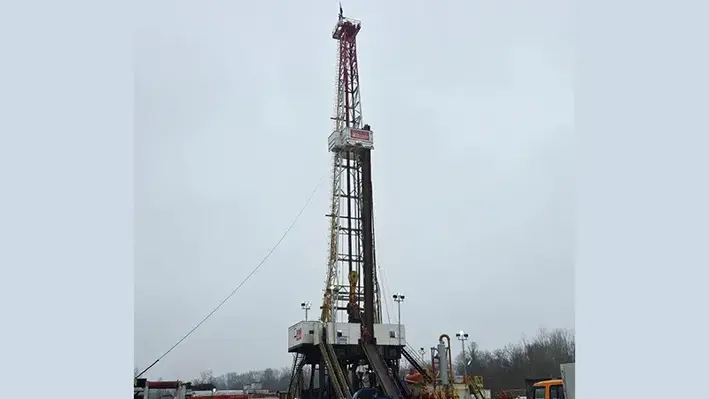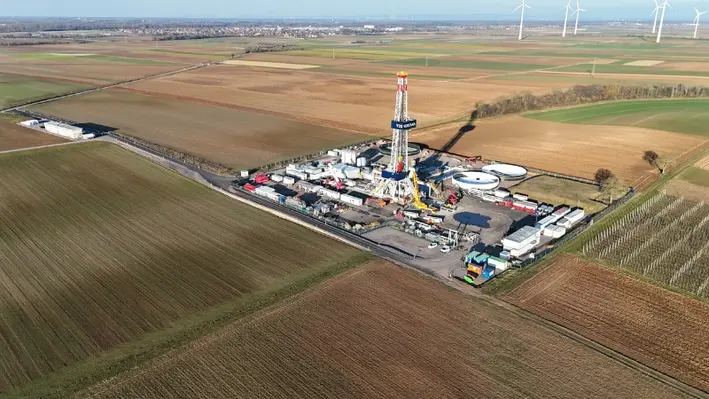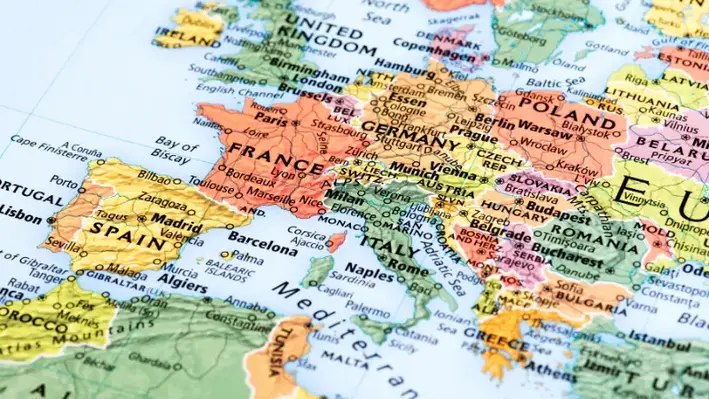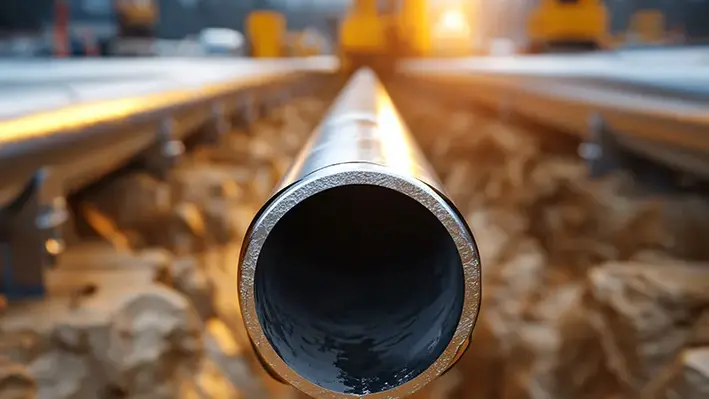Europe
Europe
- Region: EU
- Date: 19th December 2025
Iceland is strengthening its position as a global leader in renewable energy with a fresh ISK 600 million investment dedicated to innovation and technological development in geothermal energy.
- Region: Europe
- Topics: Geothermal
- Date: 19th December 2025
Germany’s Federal Ministry for Economic Affairs and Energy has teamed up with insurance giant, Munich Re, and KfW, the nation’s development finance institution, to launch a new financing package to promote geothermal energy for municipal and industrial heating.
- Region: EU
- Topics: Geothermal
- Date: 16th December 2025
A subsidiary of MVM has signed a HUF 7.86 billion contract for geothermal drilling and well-testing activities in the Kiskunhalas area, marking a significant step in Hungary’s renewable energy transition.
Maren Maras has officially commenced operations of two new geothermal power plants in Aydin, Türkiye, marking another significant milestone in the country’s renewable energy transition.
- Region: Europe
- Topics: Geothermal
- Date: 10th December 2025
The Scottish university has secured a £1mn (US$1.3mn) public grant for a geothermal feasibility pilot study to unlock the potential lying under the ground.
- Region: Europe
- Topics: Geothermal
- Date: 10th December 2025
More than 20 firms, agencies and organisations drawn from across Europe’s energy sector have teamed up to urge the European Commission (EC) to fast-track its geothermal plans.
The group— which includes Clean Air Task Force, Baker Hughes and OMV — has published a joint letter calling on the EC to ensure its forthcoming EU Action Plan on Geothermal Energy reflects the full spectrum of geothermal technologies, including next-generation high-temperature systems, that with investment, the group noted, could be capable of producing round-the-clock clean power and industrial heat at an affordable price.
The Commission is preparing to release the first EU Geothermal Action Plan in early 2026.
“A forward-looking Action Plan can help Europe lead in next-generation geothermal technologies that provide clean, firm heat and power,” said Alessia Virone, EU Affairs Director at Clean Air Task Force.
“But capturing full benefits of geothermal will require support for innovation, a stronger value chain, and efforts to reduce early-stage project risk.”
What the letter calls for:
The Plan should reflect full spectrum of geothermal technologies, including next-generation high-temperature systems that can supply clean firm electricity, support industrial decarbonisation, and improve the stability and reliability of electrical grids.
Field testing, commercialisation, and the establishment of targets or flagship projects that can accelerate deployment should be supported.
The EU geothermal value chain, including high-temperature tools, materials, services, and workforce, should be strengthened.
Calls for a workable EU risk-sharing facility that can unlock private capital and enable commercially financed next-generation geothermal projects by the early 2030s.
An EU stakeholder alliance should be created to guide implementation and ensure policy reflects real project experience.
In a statement, the Clean Air Tasforce also elaborated on why the topic matters: “As the EU looks to expand its clean energy options, geothermal remains an underused domestic opportunity, particularly advanced approaches such as superhot rock systems that tap into resources available deep in Earth’s crust.”
The signatories — spanning cleantech innovators, industry associations, public authorities, research institutions, and civil society — also include Baseload Capital, Energy Cities, Telura, Vallourec and PW Energy.
The group also includes prominent geothermal organisations such as the European Federation of Geologists and the European Geothermal Energy Council.
Other members of the coalition include AxioGeni, Canopus Drilling, Eaposys SA, Energy Institute Hrvoje Požar, Enna Geo, Future Cleantech Architects, GA Drilling, Geothermal Ukraine, Hephae Energy, SwissDGS GmbH, Turboden, Underground Ventures, and Zenon Energy Research.
“The moment to champion geothermal innovation is now,” the letter, addressed to EC President, Ursula von der Leyen, concludes.
“In a world where different regions are racing to secure technological primacy, there is no time to waste. The EU is well placed to become a leader in next-generation geothermal – now it must show a visionary outlook and put in place thoughtfully designed measures to translate this tacit opportunity into tangible benefits for EU industries and citizens.”
- Region: Europe
- Topics: Geothermal
- Date: 8th December 2025
The European Geothermal Energy Council (EGEC) has called on European Union (EU) officials to prioritise geothermal in the wake of the planned phase out of Russia gas imports.
It comes after the EU agreed to end Russian gas imports by late 2027 as part of an effort to terminate its decades-long dependency on energy supplies by its neighbour.
Moscow was the EU's former top gas supplier prior to the invasion of Ukraine in 2022, but efforts have been made to diversify European energy sources since.
“Following on from the EU’s commitments to phase out energy imports from Russia, make energy affordable, boost industrial competitiveness, improve energy security and reduce greenhouse gas emissions, EGEC insists that the European Commission (EC) must present an investment-orientated strategy and action plan to accelerate the deployment of all geothermal energy solutions,” an EGEC statement read.
The Council called on the EC to publish a dedicated European geothermal strategy and action plan in the first quarter of 2026.It added that this echoes requests made by EU energy ministers and also by the European Parliament.
“Indeed, the European Commissioner for Energy and Housing, Dan Jørgensen, has already confirmed (on 14 March 2025) that the Commission will present ‘an action plan on geothermal energy’ before the end of March 2026,” the statement noted.
According to EGEC, the Commission’s proposal must include the following elements:
• An EU-wide target to reach 250 GW of geothermal capacity by 2040 covering all technologies. This will build on the 44 GW of installed capacity in the EU.
• A European Geothermal Charter, which codifies the 2040 target and launches the Geothermal Industrial Alliance to manage its delivery.
• Targeted European financial instruments to leverage private capital.
• Measures to make permitting processes more efficient and faster, as well as improving access to geological data.
• Sectoral or tripartite agreements with key energy consumers.
• Peer-to-peer guidance to help governments develop national and regional roadmaps to remove barriers, accelerate investments and build local supply chains.
• European instruments to support value chain development in local manufacturing and skilled professionals.
• The inclusion of geothermal energy as a central pillar of the EU’s Global Gateway and the Global Energy Transition Forum.
• Improvements to the collection and presentation of market data and statistics to enable better energy modelling.
EGEC has laid out all of its proposals in a new policy document entitled: The European geothermal strategy and action plan – making Europe competitive, secure and affordable.
- Region: Europe
- Topics: Geothermal
- Date: 8th December 2025
In Croatia, research into the country’s geothermal potential continues with the start of the Zapresic GT-1 well, located near the Novi Dvori landfill in Zapresic, a town in Zagreb County, the local authority said in an update.
It forms the last of four drill locations as part of a national geothermal potential research project led by Croatian Hydrocarbons Agency (AZU).
AZU said in October that well site preparation was underway for the construction of the fourth and final well site for the drilling rig.
According to the Zapresic statement, previous research has already confirmed positive findings in Velika Gorica, Osijek and Vinkovci.
Zapresic is the next step in determining whether commercial geothermal deposits exist that are suitable for district heating needs, it noted.
"We have conducted detailed measurements and analyses at locations with geothermal potential, which have given us a good initial picture, but we can only obtain reliable data by going deeper,” said Martina Tuschl, Director of the Geothermal Energy Sector at AZU.
“The expertise of our team has been confirmed at the previous three locations where the wells have yielded positive results, and we are applying the same approach in Zapresic. Upon completion of the testing, we will have clear information about the actual geothermal potential of this area.”
She also explained that the targeted deposit is located at a depth of about 2,700 metres, where the temperature and flow of geothermal water will be measured, key parameters for assessing the deposit's economic viability.
The work at Zapresic is expected to continue until February 2026.
“This is an important moment for Zapresic,” according to the city’s Mayor Zeljko Turk.
“A project has begun that opens up the possibility of using our own source of clean energy and creating a modern, safe heating system. We believe in a positive outcome and look forward to the results that will show that our city can make a step forward towards a sustainable and long-term profitable solution for citizens, as well as the economy.”
Potential future uses of the geothermal energy in the area include the Falecnjak enterprise zone and a new planned city swimming pool.
- Region: Europe
- Topics: Geothermal
- Date: 03 December, 2025
Vulcan Energy has secured a comprehensive financing package to fully fund the construction and development of Phase One of the Lionheart lithium project in the Upper Rhine Valley.
- Region: Europe
- Topics: Geothermal
- Date: 01 December, 2025
Project InnerSpace has announced the launch of GeoMap Europe, a geothermal mapping tool that unifies decades of data to reveal the continent’s vast potential.
- Region: Europe
- Topics: Geothermal
- Date: 26 November, 2025
Arverne has commenced drilling operations on the first geothermal doublet production and re-injection wells at its Schwabwiller site in Alsace, France.
“This milestone crowns five years of intense effort and marks a major step forward in the industrialisation of the unprecedented Lithium de France project,” said Pierre Brossollet, Arverne’s founder and CEO.
On the surface, the two wells will be spaced 10 metres apart and will gradually move further apart to reach a spacing of 1 kilometre at a depth of 2,400 metres.
Drilling operations for the first doublet of the Lithium de France project will take place over a seven-month period.In a statement, the company said this initial drilling will confirm the flow rate, temperature, and lithium content of the geothermal fluid at the site.
The first phase will be crucial for collecting data that will help refine geological models and adapt technical protocols, it noted in a statement.
“The Lithium de France project will actively contribute to the energy transition by providing carbon-free geothermal heat to businesses, farms, and local communities in northern Alsace via a short supply chain,” the statement read.
The geothermal brines, rich in critical metals, will also be used to produce low-carbon lithium to support electric mobility, it added.
According to Brossollet, the project will enhance the attractiveness of the region, contribute to decarbonisation efforts, and generate nearly 200 direct jobs in the area.
The geothermal lithium produced will also have a reduced environmental footprint, with approximately 70% less CO2 emissions compared to the lithium currently available on the market.
“By combining geothermal heat and sustainable lithium extraction in Europe, this project embodies a new era of energy sovereignty and re-industrialisation for our country,” said Brossollet.
“This success is a testament to the ongoing commitment of our teams and the renewed confidence of our shareholders. It brings us closer to the final investment decision, an essential step in realising our ambitions.
- Region: Europe
- Topics: Geothermal
- Date: 25 November, 2025
Scunthorpe General hospital in northern England is set to become a showcase for geothermal energy early in 2026, according to NHS North Lincolnshire and Goole, the NHS Foundation Trust that looks after the facility.
The Trust provided an update on timings for the project, which is being carried out by CeraPhi Energy Ltd, with works “due to be completed early next year,” it noted a statement.
“Geothermal energy will be used to heat some of our hospital buildings as part of a ground-breaking project to transform Scunthorpe General into one of the greenest healthcare sites in the UK,” it stated.
“The pioneering project will see us using reliable, green heat from deep below the grounds of the hospital, reducing our reliance on fossil fuels and helping us to meet our Net Zero targets.”
The system is believed to be the deepest of its type ever installed in the UK and is part of a larger programme of improvements being made on the site, which also include replacing gas-fired boilers with state-of-the-art electric boilers and the construction of a new energy centre.
Other energy improvements include installing new car ports to house additional solar panels in the hospital’s car parks and upgrading the windows, roofing and building management system.
“We are proud to be one of the most pioneering NHS organisations in the country in using sustainable, green energy to power and heat our hospitals,” said Alex Best, group deputy director of capital services and sustainability.
“We believe this is important for a number of reasons. Firstly, we want to create healthy, clean environments for our patients, visitors and staff – and the wider communities living and working around our hospital sites.”
Best added: “We also want to invest in technology that will help to make our buildings more efficient, creating comfortable spaces for patients to heal and recuperate, that are more economical to run.
“This latest phase of works, that will see us using a geothermal system to heat some of our buildings at Scunthorpe is a really exciting development, which we hope will pave the way for similar schemes in the future.”
Gary Williams, chief operating officer of CeraPhi Energy Ltd, added: “We are immensely proud to be partnering with the NHS on this infrastructure project and we are committed to supporting Scunthorpe General Hospital in setting a new standard for sustainable healthcare.”

